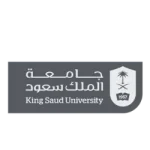Training bag: Excellence in donor service
Introduction to the program
Customer orientation in all institutions of society has become a clear feature of modern management, It is the customer who pays for goods or services and even the salaries of employees and the rent of the place, as an institution that does not serve its customers and satisfies them and directs them to them cannot succeed in its policies and processes.
And the agent of charitable organizations is a little different from the client of non-charitable organizations, For example: In charitable organizations, the value of the service is paid for by the non-beneficiary, often, This makes the clients of charitable organizations two types:
First: Benefactor donor: who pays for the service, whether it is a direct payment of its value or by doing so.
Second: The beneficiary (stakeholders in the project stakeholders): who benefits from this service whether or not he pays for it.
Benefactor Donor Concept:
So the donors are: Anyone who pays by choice an amount, effort or anything of material value for the charity to do its work, Also two types are:
1 donors with money.
2 Donors of effort are called volunteers.
The importance of benefactor donor:
No organization can and continues only to rely on its customers for its establishment and continuity, If a factory produces good goods, no one buys its production, there is no doubt that it will stop, Also, if there is no shop from which to buy or a service institution, no one wishes to pay for its services or otherwise, There is no doubt that it will not continue and can only continue with the presence of customers and their reliance.
Charitable organizations are characterized by the fact that part of their clients pay nothing for the services they take, Unlike non-charitable organizations, who wants something to pay for, And that it is the clients of charitable organizations who donate their kind to them, They derive their assets, liquidity and ability to continue and give to achieve their goals.
Because the essence of marketing is based on the science and art of finding, maintaining and developing customers. It must be sure that all organizations that customers and donors nowadays have more options than ever before, The organization, which is therefore not firmly focused on its customers and on the processes that produce value for them, will not last long in this world.
Given the importance of donors to charitable organizations, it is not possible to talk about the management or marketing of charitable organizations for their programmes without referring to donors and volunteers, Therefore, one of the important committees of any charitable organization was a development committee that led the Board of Directors’ contribution to the development and raising of funds, The boards of directors of these organizations evaluate their work periodically in order to reach donor satisfaction, It is one of the issues accompanying strategic planning by the councils of these organizations, It is therefore clear that fundraising is one of the most important tasks of the Board of Directors of the Organization and the member should not be content to become a proud social status, It is one of the 10 core responsibilities of the Board of Directors of any charitable organization.
Donor Rights Charter
Charitable organizations are civil society organizations where philanthropy is based on volunteering for the common good.
It is a tradition of giving and participation that is essential to quality of life.
To ensure that philanthropy is respected and trusted by the general public and that potential donors and donors have full confidence in non-profit organizations and the causes they are asked to support, Many specialized institutions in the field of development and development of ngos and civil society organizations, including organizations, associations and charitable funds, have worked to study the quality of services provided to donors to these organizations and to provide studies, research, evidence and systems that help improve the quality of services provided to donors to ensure that the positive relationship between donors and charitable organizations continues, including the benefit of the community and humanity as a whole.
One of the most important results of these research efforts is the work of the Association of Fundraising Professionals, AFP, the Health Care Charity Association for Healthcare Philanthropy, AHP, the Council for Advancement and Support of Education, case, and the Giving Institute: Leading Consultants to Non-Profits, a global organization that specializes in developing, improving and developing the capabilities of ngos.
Where she submitted a text for a global document guaranteeing the rights of donors under the title (and the document of the donor’s rights), It serves as a code of honor that demonstrates the commitment of ngos and charities to respect the rights of donors and to work hard by them not only to preserve the rights of donors but also to improve the service provided to them and compete for excellence in the services provided to donors.
This document states that ngos and charities dealing with donors must commit to preserving the rights of the donor and work to develop their services to donors continuously, With permission, it is guaranteed that all donors enjoy all the rights guaranteed in the Donor Rights Document.
The Document on the Rights of The Sponsors stipulates that the ngo or charity must maintain the guarantee of all the following donor rights:
1. Donors should be aware of the organization’s mission, the way in which it intends to use the donated resources, and its ability to use donations effectively for its intended purposes.
2. Donors should be aware of the identity of those who serve on the Board of Directors of the organization and expect the Board to exercise reasonable governance in management responsibilities.
3. Donors receive the organization’s recent financial reports.
4. Ensure that their donations will be used for the purposes for which they were granted.
5. Donors receive proper thanks and appreciation.
6. Ensure that information regarding their donations is treated with respect and confidentiality as stipulated in the law.
7. Expect that all relationships with individuals representing organizations of interest to the donor will have a professional nature.
8. Donors should be aware of whether those seeking to raise funds are volunteers, organization workers or designated lawyers.
9. Donors should have the opportunity to remove their names from mailing lists that the organization may intend to share.
10. Donors are free to ask questions when donating as well as to get immediate, honest and frank answers.
The commitment of ngos and charities to the content of this document in their dealings with donors, And keep these rights for every donor, Today it has become a global standard for the minimum provision of a distinguished service to donors that guarantees their rights and contributes to building bridges of credibility between the organization and donors.
The maximum practices of ngos and charities in preserving donor rights are open and measured by the quality of services provided to donors.
Therefore, competition between ngos and charities has been launched in providing innovative methods, strategies and methods to provide outstanding services to high quality donors that not only preserve the donor but also develop the preparation of donors and document their affiliation with the organization.
Is the management of ngos and charitable organizations and excellence in the service of donors science or art?
Many people are confused about management in general, the management of ngos and charities, and excellence in the service of donors in particular, Is it a science that can be taught, learned and acquired or purely art directly related to the personality of the individual? .
The team that supports that « management is science » is based on many evidence, Among them is that academics have already succeeded in teaching the science of managing ngos and charitable organizations in universities as an integrated science, Students can obtain the highest higher degrees, whether diploma, bachelor’s degree, master’s degree or doctoral degree in the management of ngos and charities through a well-established academic thesis, Like other well-known sciences, the management of ngos and charitable organizations.
Those who believe that the management of ngos and charitable organizations and excellence in the services of donors «art» more than «science» can be taught have also relied on a number of evidence.
They look at the overall management of ngos and charitable organizations and excellence in the service of donors from one angle is the angle of art, They demonstrate their hypothesis on the grounds that the arts of excellence in the service of donors and the ability to trust them and gain their trust are an art that is dominated by a limited number of workers in ngos and charities and who are good at it by nature and practice it by color without prior education, codified training or the need for study and scientific research and they know their people that they are trustworthy and ade good at this art and therefore they alone are trusted by donors and not the organization or the rest of its employees.
And their argument in this opinion is that no matter how many prestigious international universities reach higher levels in teaching the management of ngos and charitable organizations and the arts of excellence in the service of donors, It cannot claim to be able to “graduate directors of ngos, charities, fundraisers and donor relationship supervisors” who are professional and reliable to donors through a specific study program, As with engineers, lawyers, doctors and other specialties. This is seen by supporters of this proposal as evidence that the administration is more of a “technical” character associated with the person himself and his abilities than a recent science.
For reasons, including, It is difficult to conduct scientific experiments in the management of ngos and charities with the same level of accuracy and control as in natural sciences, Because management is closely linked to man, which psychologists describe as a complex mixture of composition, Out of sorts Which “makes things worse”, It is difficult to apply the practical study to it.
Because ngo and charitable organization managers, fundraisers and donor relationship supervisors rely on methods and methods such as intuition, appreciation and predicting the future, it is extremely difficult to subject them to scientific experience.
If we recognize this view, we classify customer relations with personal relationships with this worker in the ngo or charity, and it has nothing to do with it.
The management of ngos, charitable projects, charitable projects and excellence in donor services is simply “science and art” at the same time, This is the view adopted by many interested in management sciences, psychological sciences and marketing sciences worldwide, We at the Human Development Success Skills Foundation share their opinions on this, For a number of reasons.
One of these reasons is that the director of the ngo, charity, fundraiser or donor relations supervisor who did not study the mechanism of the «authorization» and its conditions and implications, Whether through courses or academic study it will be central to doing everything on its own, From printing reports to sending faxes and answering incoming calls to minutes of things that a civil organization manager, charity, professional fundraiser or donor relationship supervisor is not supposed to do alone.
We also hear about administratively failed civil and charitable organizations that are failing in their performance and suffer from the reluctance of donors in particular and people in general to deal with them or trust them, Because they face administrative problems that the director of the organization, its fundraiser or the donor relations supervisor cannot solve, Although he has studied ngo and charitable management and may have obtained a higher degree.
In this case, the issue is linked to the technical capabilities of the director of the ngo, the charity, the fundraiser or the donor relations supervisor, And not what he learned when he was on the bench.
And maybe he runs the ngo, engineer, doctor or lawyer, But he innovates in management by activating his personal abilities and they take his organization to safety, It achieves successes referred to as Lebanon.
In Arab and international ngos and charities, we have the best example that personal technical abilities may be the cause of the success of the director, fundraiser or donor relations supervisor, regardless of whether he has a degree in the management of ngos and charitable organizations.
In short: The management of ngos, charities, fundraising and supervision of donor services are “science and art” no matter how cited by supporters of the opinions for their evidence and evidence.
And looking at the modern administrative, psychological, marketing and training curricula in the field of managing ngos and charities worldwide in general, notices an expansion in adopting this trend, which may bring the curtain down to a long debate that has drained the time and effort of those interested, Darcy was baffled by the knowledge of the management of ngos and charities themselves.
We at Al-Najah Skills Foundation for Human Development always strive for excellence in providing our training, advisory and technical programs to all the beneficiaries of our services, especially the ngos and charitable organizations That’s why we’ve designed this training bag where we discuss the dimensions of outstanding service for donors in charitable organizations and organizations in particular and organizations that deal with donors in general, And the challenges they face and how to face them.
That is why we have commissioned a scientific research team of specialists in the field of administrative, psychological and marketing sciences, training specialist and design of training bags for the purpose of designing a specialized training bag in the field of achieving excellence in the service of donors.
The team started its research by looking at the international experiences in the field of managing organizations and ngos and charitable projects in general, And the outstanding service of donors in particular.
Starting from the assumption that the management of ngos and charitable organizations and the arts of distinguished service to donors is science and art, and that we want in our research to identify modern developments in this field globally, taking into account the great difference between charitable marketing in our Arab and Islamic countries and charitable marketing in the West, for example, and we focused in our study and analysis on identifying differences in the marketing of charitable projects between the Arab and Islamic world, and taking what we can benefit from Global experiences and leaving what does not work, identifying and strengthening the strengths of our ngos and charities in the Arab and Islamic world, identifying and strengthening weaknesses that may limit our ability to develop the management of our organizations and our civil and charitable projects and reduce the quality and excellence of our services provided to donors and challenge them and work to find solutions to reduce them and solve them.
While learning about the experiences of ngos and charities in the countries of America, Europe and East Asia, we found that they were distinguished in building their pioneering experience in the management of ngos and charitable organizations about ngos and charities in the Arab and Islamic world by focusing on the principle that working in this field requires the synergy of both sides (science and art) in building the organization, qualifying its employees and managing its activities.
Therefore, ngos and charities in the countries of America, Europe and East Asia have built a truly strategic partnership between them and universities, scientific, academic and applied research centers and training centers and psychological, administrative and marketing consultancy in order to employ the results of studies, theories and scientific research administrative, psychological and marketing modern in the field of management of ngos and charitable organizations and use them in the study and analysis of donor behavior.
This joint effort has resulted in the emergence of a special knowledge of the management of charitable organizations taught in their universities and institutes and produced specialists in the management of charitable organizations and projects, They are determined to manage charitable organizations and projects efficiently and effectively and build and develop modern innovative systems, mechanisms and strategies that achieve the provision of distinctive services to donors to their organizations, Which contributed to the growth of the donor segment in these countries and contributed to the localization of a social culture that encourages volunteering and charitable work and stimulates donation, It is characterized by a state of loyalty and institutional affiliation between the donor and the ngos and charitable organizations in these countries.
It was also clear that ngos and charities in these countries benefited from the expertise of specialists in psychological and administrative sciences and employed their abilities in the development of work management of charitable organizations through building a strategic partnership between charitable organizations and their universities and their research, academic and training centers that helped charitable organizations to benefit from their experiences and research results in the development of the charitable and voluntary work system in their countries.
Charitable ngos in The Countries of America, Europe and East Asia have encouraged specialists, researchers, trainers and consultants to work in charitable organizations and have sought to attract distinguished resources in their countries in the fields of management, marketing, psychological and training to work or donate volunteering as consultants to develop charitable work in their organizations, Their integration into the reality of working in charitable organizations and their actual practices of charitable activities and tasks in charitable ngos has led to a real realistic understanding and perception of the nature of work in these charitable ngos, This has effectively contributed to providing these specialists with many solutions to the problems of working in charitable organizations in a practical scientific practical way and to provide research, studies and literature that takes into account the distance from the theory that may be removed from the reality of these charitable organizations and makes the solutions provided by non-practicing specialists to the reality of charitable work have no effect in these organizations because of their unreality.
Ngos, charities, universities and academic, scientific and applied research centers encouraged researchers and authors to write and publish many books in the field of charitable organization management, And write specialized studies and researches that identify and diagnose the administrative problems of charitable organizations and suggest effective solutions for them Budgets have been allocated to sponsor their research and studies, publish their literature and support their distribution movement.
These joint efforts between charitable organizations, specialists, research centers and universities contributed to the acceleration and expansion of research studies that were interested in analyzing the nature of donors in their organizations and communities and mechanisms for managing work in charitable organizations, which resulted in the emergence of a new science called the science of studying donor behavior, It is the results of their scientific research efforts and applied academic studies in the field of applications of administrative psychology, marketing in particular, management sciences and psychology in general.
And the science of studying the behavior of donors is interested in studying the donor and his motives and desires and his patterns and needs and behavior and mechanisms of analysis and predicting and guidance for the behavior of the donor Marketing programmes that should be provided to different categories of donors.
Also, the science of studying the behavior of donors is interested in training and educating mediators (workers assigned to ngos and charities in the processes of all donations and dealing with donors) and developing their knowledge, abilities and skills and enriching their experiences from a marketing, administrative and psychological point of view so that they can adapt efficiently and effectively to the different patterns of donors, They understand according to a scientific, psychological and shopping methodology that codifies quality factors in dealing with donors from a marketing point of view and when they should treat the donor as a customer, consumer, beneficiary, financier or stakeholder, And the policies and strategies of this dealing.
Interest in the study of the marketing science of charitable projects in particular, which is concerned with studying the effects of the marketing environment on organizations in general and charitable organizations in particular, has also emerged. Studying charitable marketing programs and plans, their specificities and the mechanisms for their preparation.
Accordingly, many researches and scientific studies have been prepared in the field of science and the arts of marketing charitable projects.
Some of these researches, studies and literature have focused on developing integrated studies on the marketing mix of charitable organizations and the applicability of the marketing mix of industrial institutions or the marketing mix of services to charitable organizations to reach a final version of the marketing mix in charitable organizations.
Several studies have also emerged on the impact of the difference of beneficiaries in charitable organizations from the beneficiary in for-profit service organizations and the impact on their respective administrative and marketing aspects.
Studies have been developed showing the priorities of charitable organizations’ departments in marketing their projects, Is it a trend towards the donor, the mediator, the beneficiary or the message? And how to work? When these parties conflict and disagree.
Research and studies in the field of the management of charitable organizations were also interested in studying the affairs of volunteers in these ngos and charitable organizations, Integrated studies have emerged on the management of volunteer affairs, interested in the concept of volunteering And the duties and rights of volunteers, and mechanisms for spreading and promoting the culture of volunteerism in society, and methods of attracting new volunteers and attracting them to join charitable organizations, and the mechanisms of dealing with them, and how they are classified in the administrative structure of the organization, And controls to benefit from them from the administrative and marketing point of view.
Research, literature, courses and training bags have focused on studying the mechanisms for contacting charitable organizations with different community institutions and how to achieve the integration that develops and strengthens society.
Studies, literature, courses and other training bags have come out interested in studying the fair competitive means that charitable organizations should do, Warning of dishonest means from which to be removed.
We are at the Foundation for Success Skills for Human Development and after we have been informed of all the above studies and results of scientific research and the writings and courses of academic curricula in the field of management of charitable organizations, And comparing this rich scientific production in this field in the American, European and East Asian countries with what we have in the Arab and Islamic world from limited sources of knowledge in this field, As a specialized institution in the field of human development, we find ourselves responsible for contributing to the production of training bags, scientific materials, research and literature that help develop organizations and charitable work in the Arab and Islamic world.
Al Najah Human Development Skills Foundation’s efforts to develop the training portfolio
This training bag works to provide a comprehensive knowledge vision of the management of charitable organizations, And the mechanisms, arts and skills of outstanding service to donors, This bag is not limited to this presentation, Rather, it goes beyond providing practical applications on how to apply these skills in practice through workshops containing practical experiences from actual practices from our training and management expertise that we transfer to participants in the training program.
This experience provided by this training bag coincides with the directions of the Foundation for Success Skills for Human Development, which takes care of the synergy of the theoretical and applied aspects in the context of practical training finds a place in theoretical thinking and practice in the training room.
And in light of this trend, Success skills look forward to providing a training bag in which participants find the knowledge, skills, directions and experience they need that contribute to the development of their abilities to produce outstanding services for donors, And what they benefit from in their daily practices to manage the work of charitable organizations and projects.
We look forward to this training bag, and other products we produce in the Foundation of Success Skills for Human Development, An entry point for a broader and in-depth dialogue leading to the creation of interactive training climates so that active learning and practical applications taking place in the training room and outside the training program are the main focus and the actors in it with motivation and high desire that, when they are treated to their organizational environment, will transform the way they practice their work and contribute actively to the administrative process, contributing to the increased efficiency and effectiveness of the participants and contributing to raising the efficiency of the organization’s productivity and achieving its objectives from the training process in accordance with the training process. Indicators measuring the scientific and codified impact of training.
At The Success Skills Foundation for Human Development, we have focused on this training bag and the tribi program in general being a fun and useful course, which is why it is a truly active training operator in which participants learn and practice in accordance with active learning strategies the skills and arts of outstanding service of donors in charitable organizations.
Here is a good job for us to show you the description of the training bag and ask God for you pleasure and benefit and meet your training needs
To order : info@hakapetk.com00966 – 0567518848 available Whatsapp+Viber




















Reviews
There are no reviews yet.
Only logged in customers who have purchased this product may leave a review.